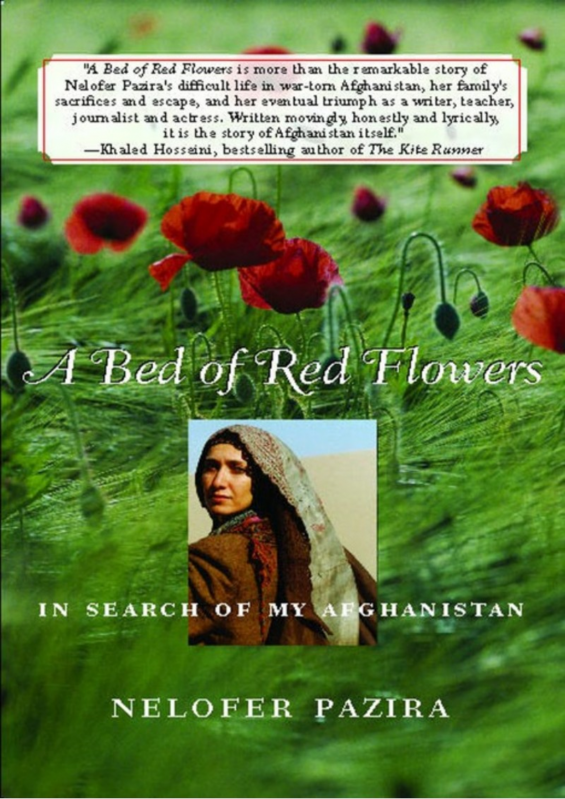30 May / A Bed of Red Flowers: In Search of My Afghanistan by Nelofer Pazira

 In September 1978, three months before her fifth birthday, Nelofer Pazira went to visit her father on the third day of what would become a five-month unjust imprisonment; his alleged crime, like thousands of other Afghans at the time, was not supporting the Communist government. His angry admonishment of “‘I didn’t raise you to cry on such a day,'” would shape the rest of Pazira’s life: she knew that she would need to be unfalteringly resilient and brave.
In September 1978, three months before her fifth birthday, Nelofer Pazira went to visit her father on the third day of what would become a five-month unjust imprisonment; his alleged crime, like thousands of other Afghans at the time, was not supporting the Communist government. His angry admonishment of “‘I didn’t raise you to cry on such a day,'” would shape the rest of Pazira’s life: she knew that she would need to be unfalteringly resilient and brave.
For Pazira, the privileged daughter of a medical doctor and a schoolteacher, childhood ended that day. For the next 12 years, her extended family would suffer an odyssey of uncertainty, oppression, violence, and death. Her country would become a hellish battleground, decimated by the Soviets and the mujahidin (supported with US dollars). In spite of her father’s stern protestations, the family finally escapes to Pakistan, where they live as unwanted refugees, until they are suddenly allowed to relocate to Canada in 1990.
Having endured a youth filled with repression, Pazira does not merely assimilate into the relative comfort and safety of her new country. Her connection to her homeland never wavers, driven by her search for a childhood friend, Dyana; she returns multiple times after 9/11 on journeys both professional (as a journalist and filmmaker) and deeply personal. The most touching (and surprising: SPOILER ALERT) of her journeys takes Pazira to Russia where she confronts, face-t0-shattered-face, her country’s former enemies.
Pazira’s memoir is a heart-thumping, page-whipping journey of both brutality and hope. For every faceless official with unjust power, Pazira brings to life the selfless friends and strangers who enabled her immediate family to survive, especially the impossibly young, inspiringly courageous Naseema who guides the Pazira family to the Pakistani border.
And yet, as a piece of literature – while told well-enough overall – a stronger editor might have made it a more flowing read, with less back and forth chronological jumping in the first third, and a few more details in the last third, especially during the family’s initial relocation in Canada. That said, readers will undoubtedly remember vivid chunks of Pazira’s experiences long after the final page. In a near-demonized post-9/11 world, Pazira offers an upturned, open face and humanizes her country’s troubled story.
Readers: Young Adult, Adult
Published: 2005
